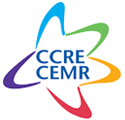
Greece Unitary state
| GREECE | / STRUCTURES |
Structures and competences
Local level :
325 municipalities (dimos)
The municipal council (dimotiko simvoulio) is composed of members elected by direct universal suffrage for a five-year term. This deliberative assembly, headed by the mayor, is the decision-making body of the municipality. The municipal council is composed of a number of committees including the financial committee, the quality of life committee and the board of immigrant integration.
The executive committee (ektelestiki epitropi dimou) is the municipality’s executive body. It is composed of the mayor and deputy mayors and monitors the implementation of municipal policy, as adopted by the municipal council.
The mayor (dimarchos) is elected by direct universal suffrage for a period of five years. He/she defends local interests, oversees all local development actions and represents the municipality. The mayor also presides over the executive committee and coordinates the implementation of its decisions.
Insular and mountainous municipalities have a wider set of competences, which include development, environment, quality of life, health and welfare. They can also set up special committees for the promotion of tourism.
Metropolitan areas too have their own extra set of competences, such as transport, communication, environment, quality of life, urban planning, urban regeneration as well as civil protection and security.
COMPETENCES
- Building permits and urban planning applications
- Social welfare
- Issuing of professional licenses
- Agriculture, livestock and fisheries
- Transport infrastructure
- Health care
- Education
Regional level :
13 self-governing regions (peripheria)
The regional council (peripheriako simvoulio) is composed of members elected by direct universal suffrage for a period of five years. This deliberative assembly, presided over by the head of the region, is the regional authority’s decision-making body. The regional council is composed of a number of committees, including the financial and the regional committees for consultation.
The executive committee (ektelestiki epitropi perifereias) is the region’s executive body and is composed of the head of the region and the deputy head. It is responsible for monitoring the implementation of regional policy.
The head of the region (perifereiarchis) is elected by direct universal suffrage for a five-year mandate. He/she directs the implementation of regional development plans, issues all non-regulatory acts, and implements the decisions made by the regional council, the executive committee and the financial committee. The head of the region convenes and presides over the regional council and the executive committee and represents the region.
COMPETENCES
- Regional development planning
- “Green” development





